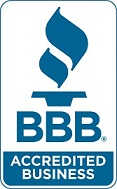FORENSIC NURSE SPECIALIST CERTIFICATION AND EDUCATION PROGRAM

Frequently asked Questions and Responses (FAQs)
Welcome to the FAQs section for the Forensic Nurse Specialist certification program. This area is provided to you as a source of information that may be more clarified, related to questions you may have in regards to our certification program. Information regarding recertification, as well as information about our online continuing education courses, is also provided. We highly recommend that you first thoroughly review all of the information on our website, under the main page for the Forensic Nurse Specialist Certification. Access here .
If after reviewing all of the provided information and this FAQs section, any other questions may be addressed by completing our request for information form online (access info form). Thank you for your interest in our Forensic Nurse Specialist program.
FORENSIC NURSING EDUCATION BLOG: Please visit our Forensic Nursing interactive web blog. Our blog contains articles, news, events and information related the Forensic Nursing Education field.
What is Certification?
Response: certification is a voluntary process, which is provided by a well organized organization, that through its qualified advisory boards, develops comprehensive and quality standards for the practice of a type of specialty. The developed standards address high quality requirements for the practice of a certain specialty. The defined standards speak to educational and/or practice requirements, any required prerequisites, and the need to adhere to a defined code of ethics for the practice specialty. Certification is a voluntary process. It is different than any type of licensing. Certification is one means by which professionals may be publicly recognized as achieving a high level of education, knowledge base and practice skills for a certain healthcare related specialty. Certification also assists employer organizations and clients in their assessment of appropriate qualifications for candidates seeking positions in organizations and/or involved in private practices. It is commonly held, today, that certification by a very well organized professional organization, is fast becoming a "gold standard" for specialty practices. Certification testifies and provides a verification of defined educational requirements, adherence to a solid code of ethics, and in many instances prerequisites of practice experience for the practice of forensic nursing and related services.
What are the criteria/standards I will need to meet to achieve certification?
Response: The educational criteria and standards are well and clearly defined within our website. Please access our main page to preview these requirements. Access here.
May I apply for and be conferred certification if I have been practicing as a forensic nurse without the need to meet the educational requirements?
Response: No. The Board that oversees the development and approval of defined criteria and standards for certification will not consider only practice experience as meeting requirements in full. This decision was made as those who are already in forensic nursing practices have varied and different experiences related to life coaching in health care education and counseling and there is no insured uniformity that all who have practiced forensic nursing have the same knowledge base and skills attainment. The evaluation of one's past practice experiences in health care practices is highly variable and subjective. As such, the Board has developed objective criteria/standards for the conferral of certification. For these reasons, practice experience without the attainment of education will not be considered as fulfilling criteria and standards for our certification.
Over the years, I have completed many seminars and continuing education courses related to forensic nursing. Will these apply toward the education requirements for certification?
Response: No, under ordinary circumstances. One would have to verify completion of college level courses or continuing education courses directly related to forensic nursing practice. The courses would have to be "comparable" to our defined continuing education courses in our curriculum. The content of the courses must be comparable, as well as the hours of continuing education. Those who believe they may have already obtained comparable education and study in this specialty may submit a proposal to us, including all verifications of course completions, course descriptions, school or organization attended, etc. Each such submission will be evaluated on an individual basis.
What is the major practice focus of a certified forensic nurse specialist?
Response: a certified forensic nurse specialist, as defined by the American Institute of Health Care Professionals, Inc, is a Registered Nurse who has successfully completed a comprehensive education program specifically related to current facets of forensic practice, within the scope and standards of professional nursing practice. A certified forensic specialist has demonstrated through education and competency testing, the ability, knowledge and skills to practice forensic nursing today. The forensic nurse specialist has achieved a wide base of knowledge related to modern forensics and specifically the implementation of the nursing process in forensic related practice. The forensic nurse specialist has also demonstrated competency and acquisition of knowledge in the domain of forensic pathology and uses this knowledge in his/her practice.
Forensic nursing is a "newer' nursing specialty practice that continues to gain great acceptance and provides for interesting and job enrichment practice opportunities for professional nurses. Primary areas of practice include; medical examination work with coroner's offices/departments, crime scene and related investigations, psychiatric forensic practice, child abuse, domestic abuse, sexual assault, death investigations, emergency and trauma services, accidents, injuries, elder abuse, and many more related areas of client populations and situations. Forensic nurses may be called upon in cases of wrongful death, accidents, etc, by legal nurse consultants, to provide a collaborative practice model in such cases.
The roles of the forensic today are many and varied, and are being developed as this important nursing specialty continues to grow in dominance and importance. A forensic nurse is not a "legal nurse consultant" and a "legal nurse consultant" is not considered to be a forensic nurse. Many professional nurses do obtain education and knowledge in both specialty practices, but their are not considered to be "synonymous" in specialized scope and practice areas.
Forensic nurses bring all of their education, training and skills in professional nursing, to the practice settings of forensics. In this way, they provide for an important role as a team member with many other forensic specialists, for the overall benefit of clients and communities served.
Forensic nurses work more than ever today in any situations related to crime, victims, abuse, health and safety, etc. They may seen today at crime scenes, conducting death assessments and investigations related to trauma, homicide, accidents, and suicides. They may also be seen working with laboratory personnel in criminal labs, assisting with coroner autopsies, investigating incidents of many types of abuses, and much more.
There are many forensic nurses who practice in the role of sexual assault examiners. Our certification does NOT certify one to practice as a sexual assault examiner. The AIHCP supports that this particular practice, while related to forensic nursing practice, is a "specialty" practice within the overall practice of forensic nursing. AIHCP supports that a sexual assault examiner must also achieve a very high level of knowledge, skills and competencies to conduct sexual assault exams, including practicum experience with a competent examiner in the clinical setting.
Our certification program does not include this particular scope of practice. Our certified members who wish to pursue specialty education and credentialing in this particular domain of forensic nursing practice are encourage to continue their education in a program offer such education and training. AIHCP will provide it's students in the program information on seeking additional information and education for practice as a sexual assault examiner.
The certified forensic nurse today is a clinician, an advocate, an educator, a researcher and a consultant in many areas of forensics. They are also innovators as they continue to mold and develop this practice specialty by their experiences and continued education.
Where do certified forensic nurses practice?
Response: Certified Forensic Nurse Special its practice their specialty in virtually any health care setting/delivery model in which care is provided and in which forensic science may be involved. They are especially seen practicing in collaboration with law enforcement, medical examiners, forensic laboratories, psychiatric/mental health facilities, community agencies, disaster services, correctional facilities, emergency service providers, criminal investigators, emergency departments, trauma units, and more as also defined above. Forensic nurse specialists may also be called upon as "consultants" in many cases related to their practice specialty. They may be required in some cases to provide testimony in cases of crime or negligence, as a consulting specialist or fact witness.
Does the American institute of health care professionals provide approval's for education programs whose graduates would qualify for being conferred certification?
Response: Yes. We do provide a full program approval process for those education facilities and or organizations providing education related to forensic nursing practices. Applications for program approval are thoroughly reviewed and must adhere to the defined standards and criteria as established by the advisory board. Once a particular education program has been approved it is then posted as an approved program on our website (view approved programs). Graduates of programs we have approved may apply for certification. Any formal education program offering a comprehensive program related to forensic nursing practice, may submit their program for review.
WHAT IS THE PROCESS FOR ACHIEVING THIS CERTIFICATION?
Response: There is a two-phase process. In order to provide clear and sufficient information on the process we have developed a separate page that defines the process. You may access this information on the certification process at this link: click here.
How can I make application?
Response: Making application is an easy process. We provide on this website a link to a printable application. Those wishing to make application may access this link, print out the application form, completed it, and submit it to our office for review. You may access online applications at this link. Please note that incomplete applications will not be reviewed. All applications that are submitted must be complete and include all required documents and verifications as specified for review and consideration of certification conferral. Before making any application, you must meet the defined pre-requisite to enter the program and have successfully completed the full continuing education curriculum, or a curriculum from a program that AIHCP, Inc. has officially approved.
Once I have achieved certification, must I ever be re certified?
Response: Yes. A conferred certification has a period of 4 years. At the end of the four-year period the certification will expire. The American Institute of Health Care Professionals provides a full program for recertification. Detailed information on the criteria to be recertified, after the three-year initial certification period, is provided on our website. Access here.
I am currently certified by the American institute of health care professionals as a certified forensic nurse specialist. I know I am required to achieve additional education in order to qualify for recertification in the future. Do you offer any continuing education courses that I may take to meet my recertification requirements?
Response: We will soon be offering continuing education courses related to topics of forensic nursing practice which are approved for the required continuing education hours for recertification.
Call for Course Authors/Instructors
April 2010


